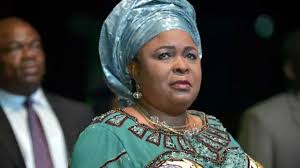Tinubu's Early 2027 Presidential Endorsement Debate

The political landscape in Nigeria is witnessing early tremors regarding the 2027 presidential election, as endorsements for President Bola Ahmed Tinubu's potential second term have begun to surface, drawing both staunch support and sharp criticism. This premature focus on the next election cycle has ignited a debate about the priorities of the ruling All Progressives Congress (APC) amidst prevailing national challenges.
A prominent voice of dissent is former Attorney General of the Federation (AGF) and Minister of Justice, Abubakar Malami. Speaking on May 25 in Abuja at a meeting of the National Political Consultative Group (North), Malami criticized the APC for prioritizing politics and endorsing President Tinubu for 2027 while allegedly ignoring pressing issues such as insecurity, economic hardship, and rising poverty. He argued that the APC's actions demonstrate insensitivity to the plight of Nigerians. Malami specifically contended that certain policies under the Tinubu administration, including the unplanned removal of fuel subsidy and poor border management, have adversely affected the economy of northern Nigeria and crippled its agricultural backbone.
The National Political Consultative Group (North) meeting, where Malami voiced his concerns, was attended by several opposition figures, including former Vice-President Atiku Abubakar, 2023 Labour Party presidential candidate Peter Obi, and former Rivers State Governor Chibuike Amaechi. The gathering is reportedly part of a series of consultations aimed at forging a coalition against President Tinubu. A communique from the meeting, signed by former Secretary to the Government of the Federation (SGF) Babachir Lawal, emphasized the need for the north to present a united front in future elections. The group also decried elected leaders who endorse candidates without consulting their constituents and stressed the importance of selfless leadership and prioritizing industrialization to address the economic quagmire.
Conversely, the APC has formally backed President Tinubu for the 2027 polls. At a national summit held in Abuja on May 22, the Progressive Governors Forum (PGF), comprising 22 APC governors, and National Assembly leaders, including Senate President Godswill Akpabio, unanimously endorsed Tinubu as the party’s sole candidate. Akpabio, who moved the motion for endorsement, asserted that President Tinubu has performed well despite current economic realities and deserves re-election.
Support for Tinubu's early endorsement also comes from within the APC. Chieftain Moses Ayom backed the decision, highlighting what he described as impactful administrative reforms and positive economic indicators, such as a GDP growth of 3.86 per cent in the last quarter of 2024. Ayom urged Nigerians to support the administration's efforts to transform the country.
Senator Orji Uzor Kalu, representing Abia North, has also been a vocal supporter, dismissing suggestions that the endorsements stem from fear of opposition alliances. Kalu asserted that the support for Tinubu is a direct result of his performance and bold policy directions, such as the fuel subsidy removal and the unification of the exchange rate. He publicly displayed his support by wearing an outfit bearing the inscription ‘Tinubu for President 2027’ to a Senate plenary. Kalu further revealed that the Southeast APC caucus, chaired by Governor Hope Uzodinma, had endorsed Tinubu for re-election weeks before the national declaration, initiating the move. He acknowledged the hardships caused by current economic reforms but insisted they were necessary sacrifices for long-term stability, predicting that Nigerians would appreciate Tinubu's efforts in the coming years.
Other critics, such as former Minister of Youth and Sports Solomon Dalung, have also expressed concerns about the state of the nation under Tinubu's leadership, scoring his performance low and suggesting the current hardship is unprecedented.
The contrasting reactions to President Tinubu's early 2027 endorsements highlight a deeply divided political environment. While supporters point to performance and necessary reforms, critics emphasize unaddressed national crises and accuse the ruling party of premature politicking, setting an early stage for a potentially contentious lead-up to the next general election.








